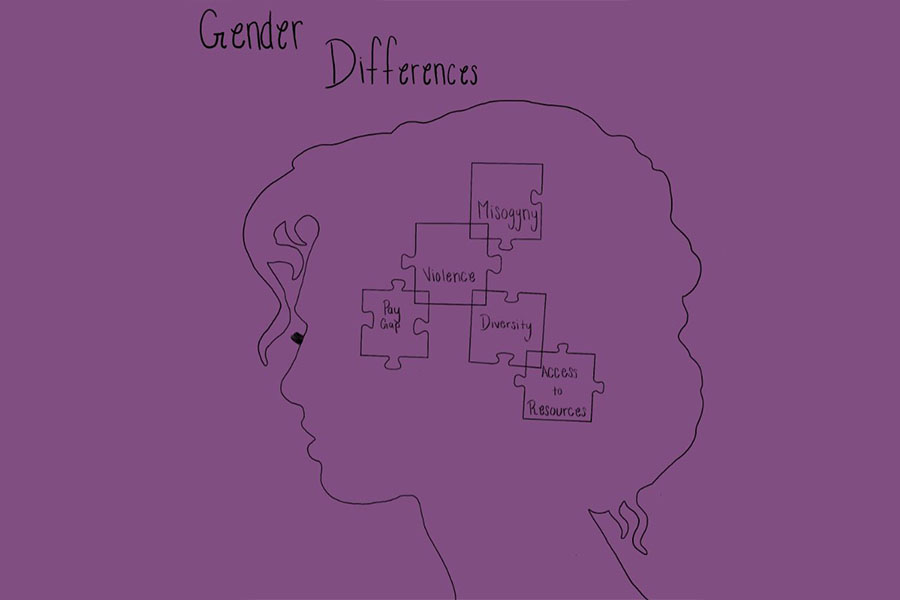When we think of a great leader, the image of a charismatic and outgoing person would almost instantly come up in our mind. It is widely believed that extroverts, who are praised for being outspoken, thinking quickly on their feet and knowing a lot of people, have what it takes to be a great leader.
I would argue otherwise. I believe an introvert would make an excellent leader, one who would be even better than their extrovert counterpart. However, people often mistakenly identify introverts as someone who is just too shy to come out of their shell.
Jennifer B. Kahnweiler, who wrote “The Introverted Leader: Building on Your Quiet Strength,” believes that it is important to distinguish between shyness and introversion.
“There is a difference between introversion and shyness,” Kahnweiler wrote. “Shyness is driven by fear and social anxiety. Although the symptoms may overlap, e.g., avoidance of public speaking, introversion is a preference and should not be considered a problem.”
In “Personality Types,” Psychologist Carl Jung defined an introvert as someone who prefers quiet social settings. They prefer to be left alone and would rather listen than making meaningless small talk. They recharge their energy by isolating themselves. On the other hand, extroverts are energetic, talkative, outgoing and sociable. They are comfortable and enjoy all of the social activities that they can take part in such as going to networking events to recharge their energy.
In today’s society, most extroverts dominate the workplace and classrooms. Because of their traits, extroverts could be identified as being more open and transparent than introverts. This leads to extroverted leaders having a larger following than introverted ones because people often figure that if you can speak loudly about something, you seem to know or have a lot of knowledge about a topic.
But I don’t think so. Susan Cain, author of ”Quiet: The Power of Introverts in a World that Can’t Stop Talking,” argues that having the loudest opinion doesn’t equate to that opinion being right or the best solution to a problem. This is where introverts can come in as a great asset because they’re almost like a think tank.
“The power of silence is another characteristic that can serve as a strength,” Kahnweiler wrote. “Many people are not comfortable with silence and try to fill the gaps with comments that are off the cuff, where as the comments made by the introvert can be more thoughtful.”
Introverts listen to all sides of an opinion and consider all of the options before making a decision. Therefore, they are less likely to make risky decisions, according to Cain.
But why is this debate important? Because an ideal leader would be an introvert, yet we still praise extroverts. It’s time to change that. So stop mistaking introverts for shy people.
And introverts, be bold and step out of your comfort zone once in a while. Don’t let the patriarchy drags you down. Try everything while you can and be proud of your introversion. Or just be proud of who you are and be comfortable in your own skin.
Don’t let the negativity of the world brings you down. Stop hiding inside the house. Wear that introversion badge proudly on your chest and work it! Let the world see your true self.














Michael • May 20, 2016 at 3 -07:00.05.
As a staunch introvert, I totally agree. Three out of five Fortune 500 CEOs test out as introverts. They have sound, well thought out ideas that make business sense and success. However, in contrast, my experience in higher education leadership is that extroverts get the attention because of their loud mouths. They think with their tongues flapping. All to often most everyone loves the jabbering. And their ideas are often not well thought out and sometimes even terrible. They double-speak. If we introverts dare sharing our counter opinion, we quickly shut down when challenged by the loud mouths in the room. Therefore, extroverts dominate discussion and much too often decision making. As an introvert, I have attempted to play the extrovert game and it is exhausting. As advised in the article, after years of attempting to promote in my college district, a extrovert-driven and highly political environment, I am learning to just settle down and be comfortable with who I am (inside myself). Giving my best in my nine hours. And if I spend too much time sitting in meetings during that nine hours, then I go home and sit in the quiet for the evening to rejuvenate for another work day.